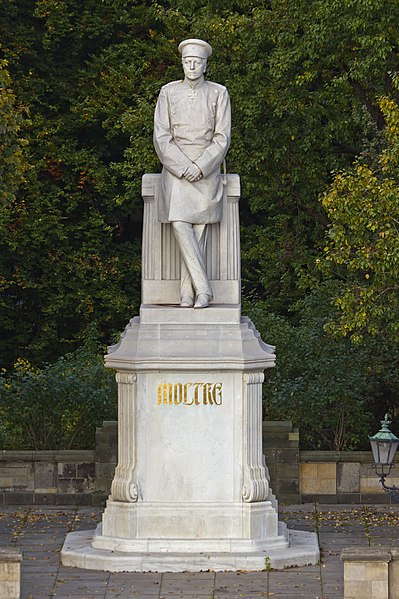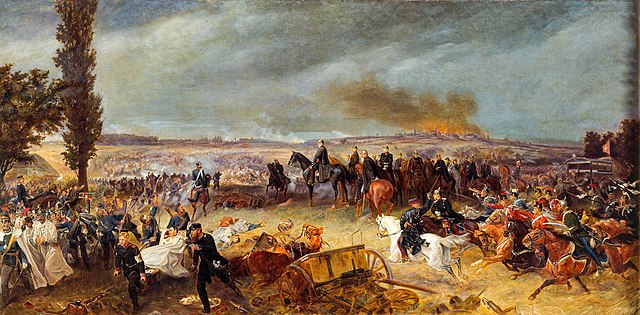Helmuth von Moltke the Elder
Helmuth Karl Bernhard Graf von Moltke was a Prussian field marshal. The chief of staff of the Prussian Army for thirty years, he is regarded as the creator of a new, more modern method of directing armies in the field and one of the finest military minds of his generation. He commanded troops in Europe and the Middle East, in the Second Schleswig War, Austro-Prussian War and Franco-Prussian War. He is described as embodying "Prussian military organization and tactical genius". He was fascinated with railways and pioneered their military use. He is often referred to as Moltke the Elder to distinguish him from his nephew Helmuth von Moltke the Younger, who commanded the German army at the outbreak of the First World War. He is notably the earliest-born human to have been audio-recorded, being born in the last year of the 18th century (1800). He made 4 recordings, 2 of which are preserved to this day, that were recorded in October 1889.
Helmuth von Moltke, c. 1889
Moltke (left) advising Ottoman commander Hafiz Pasha at Nezib
Statue of Helmuth von Moltke the Elder, near the Berlin Victory Column in the Tiergarten, Berlin, by Joseph Uphues
Sketch of Helmuth von Moltke
The Austro-Prussian War, also by many variant names such as Seven Weeks' War, German Civil War, Brothers War or Fraternal War, known in Germany as Deutscher Krieg, Deutscher Bruderkrieg and by a variety of other names, was fought in 1866 between the Austrian Empire and the Kingdom of Prussia, with each also being aided by various allies within the German Confederation. Prussia had also allied with the Kingdom of Italy, linking this conflict to the Third Independence War of Italian unification. The Austro-Prussian War was part of the wider rivalry between Austria and Prussia, and resulted in Prussian dominance over the German states.
Battle of Königgrätz, by Georg Bleibtreu. Oil on canvas, 1869
Movements of the Prussian Army near the Main river
The memorial to the Battery of the dead in Chlum (modern Czech Republic) commemorates some of the heaviest fighting during the Battle of Königgrätz.
Prussian Prince Friedrich Karl is cheered on by his troops.








